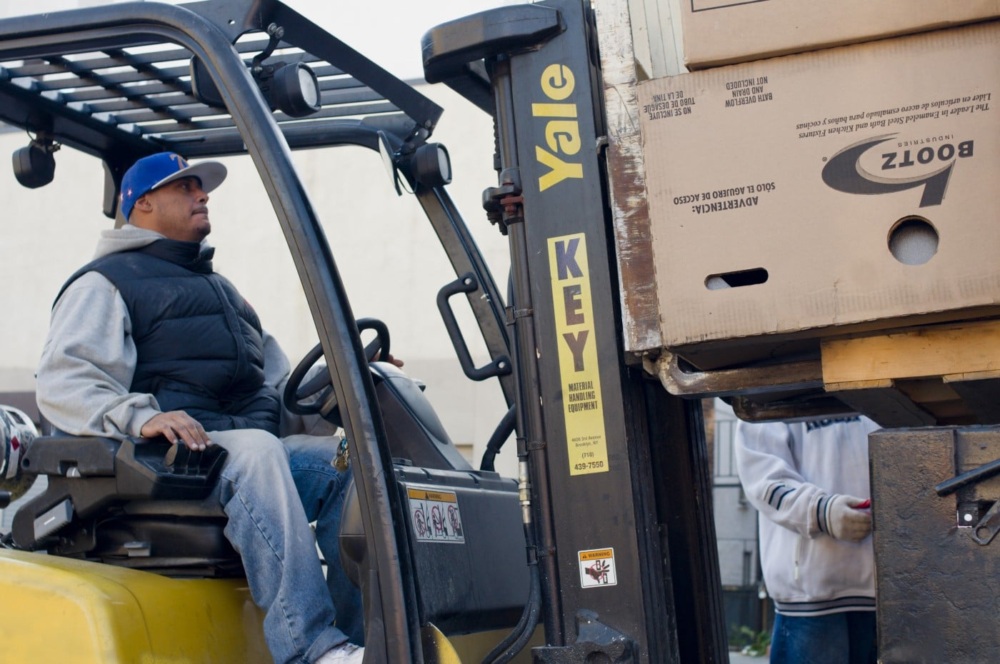

We’re humbled to announce that Social Finance is one of five winners of the Macquarie Group 50th Anniversary Award. The prize comes with A$10 million in funding, which we will use to jump-start a new generation of Pay for Success (PFS) projects and cultivate an evergreen investment fund to accelerate program design and execution. Below, we share more about what this funding means for us, our partners, and the people we serve.
Economic mobility ranks among our most pressing global challenges. Here in the US, residents’ ability to increase their income or wealth over time has declined significantly. Fifty years ago, 90% of people went on to earn more than their parents — today, just half will experience this generational income growth. At the same time, real wages are stagnant for all but the top earners. In short, the American dream is eroding for the majority of the population.
A growing skills shortage only exacerbates this situation. Employers across the country are working to fill more than 7 million vacant positions yet 40% can’t find workers who have the requisite skills, even for entry-level roles. While there are some great career training programs out there, public funding for these is scarce. In fact, government investments in workforce development initiatives have decreased by 40% since 2000.
Now is the time for actionable, innovative solutions for financing training programs that reduce the ongoing skills shortage and offer low-income individuals pathways to the middle class and to relative economic stability.
Putting the funding to work
Since our founding, Social Finance has developed groundbreaking funding mechanisms centered on the Pay for Success model, which mobilize public and private capital to improve social outcomes at scale. Unlike most impact investments, many of which tie financial returns to business performance with impact as a by-product, PFS projects deliver direct, measurable outcomes for communities. In these initiatives, impact is the sole animating force, propelling governments, service providers and investors to look outward, collaborate and identify ways to catalyze lasting change.
As we accelerate our efforts in the economic mobility space, we will use a range of PFS tools including:
Social Impact Bonds: We have developed the social impact bond (SIB) over the past decade alongside PFS itself. The SIB enables governments to achieve results for communities by bringing them together with investors and service providers to address a specific social challenge. Investors provide up-front working capital to support service providers in delivering high-quality programs and governments make outcomes payments, only once a program has achieved outcomes that benefit participants and society.
We’ve launched SIBs focused on improving workforce outcomes for refugees and immigrants, formerly incarcerated individuals and, most recently, veterans with post-traumatic stress disorder.
With the Veterans CARE initiative, we brought together the U.S. Department of Veterans Affairs, Massachusetts, the City of Boston, New York City, the Tuscaloosa VA Medical Center, and impact investors to scale a supported employment program for 500 veterans grappling with the psychological wounds of war. Over the course of the three-year program, these former service members will gain the support they need to move into good jobs and rebuild their lives.
Similarly, in the Massachusetts Pathways project our team worked with the Commonwealth, Jewish Vocational Service, and impact investors to grow a vocational training program to serve an additional 2,000 immigrants and refugees living in Greater Boston.
Career Impact Bonds: The newest PFS tool in our tool kit, Career Impact Bonds (CIB) are a type of student-friendly income share agreement (ISA), focused on improving access to high-quality education and job training programs for people stuck in cycles of un- and under-employment. Investors cover program costs; CIB participants don’t take on any debt and make payments only if they get quality jobs and earn above a set income threshold. CIBs remove students’ upfront cost-burden and ensure that repayment only happens if and when they are financially stable.
We’re launching our first CIB this year — a program that will enable 1,000 low-income students to access best-in-class computer programming training and critical support services to prepare them for careers within the ever-expanding technology sector.
In the coming years, we will grow our portfolio of economic mobility projects, prioritizing high-demand careers in industries such as IT, health care, green energy and skilled manufacturing. And we will continue to innovate, developing new financing solutions that bring cross-sector partners together to address this critical challenge.
And what is an evergreen fund?
In most Pay for Success projects, outcomes payments go toward reimbursing the impact investors who provided up-front capital. But with the evergreen fund, we can recycle these payments to support future work. This means that for every $1 contributed, we can render $2, $5 or even $20 worth of direct impact as outcomes payments cycle through.
By creating an evergreen fund using seed capital from the Macquarie award, we will accelerate our PFS work and amplify our impact through a self-sustaining investment vehicle. The Social Finance evergreen fund will be the first of its kind in outcomes-based financing.
Putting it all together
Each of these pieces, the SIB, the CIB and the evergreen fund, has its own potential for impact, but what we are most energized about is how these components fit together. By accelerating our PFS project workflows and launching the first-ever PFS evergreen fund, we will create a catalytic cycle of supply and demand, ultimately mobilizing $1 billion in capital dedicated to improving economic mobility for hundreds of thousands of our nation’s most vulnerable.
Related Insight

Learning to Do Better: Building the Evidence Base on Career Impact Bonds and Economic Mobility
With funding from the Strada Education Network, Social Finance has launched a partnership with MDRC to implement a robust learning agenda to assess the implementation and outcomes of the Career Impact Bonds funded through the…

5 Lessons on Economic Renewal from the 2021 Social Impact Exchange Summit
A panel of cross-sector leaders convened last month at The Exchange 2021: The Systems Summit to discuss economic recovery.